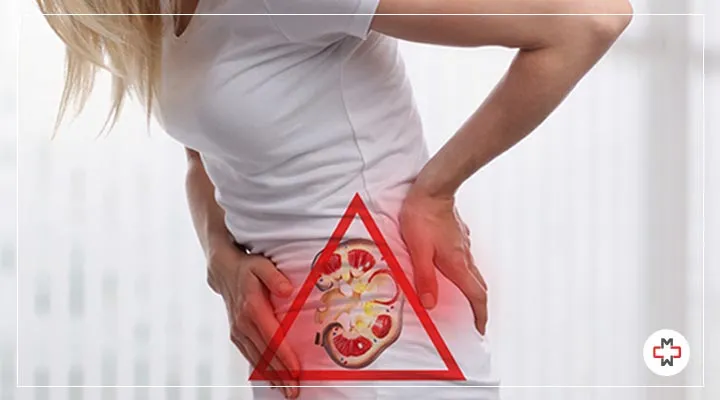Contrasting Kidney Stones vs UTI: What You Need to Know About Their Effect On Health and wellness
Contrasting Kidney Stones vs UTI: What You Need to Know About Their Effect On Health and wellness
Blog Article
Recognizing the Key Differences In Between Kidney Stones and Urinary System Infections: A Thorough Overview for Individuals
Recognizing the differences in between kidney stones and urinary system tract infections (UTIs) is vital for people that might be experiencing comparable symptoms yet deal with significantly various health and wellness difficulties. While both problems can materialize discomfort in the lower abdomen or back, their underlying causes, diagnostic techniques, and treatment protocols diverge considerably. A nuanced comprehension of these distinctions not only help in precise self-assessment however additionally notifies conversations with medical care service providers. As we explore these vital facets, it becomes clear that recognizing the one-of-a-kind features of each problem can exceptionally influence person results. What may be the best strategy to addressing these distinctions?
Summary of Kidney Stones
The formation of kidney stones, a typically incapacitating and agonizing condition, highlights the essential importance of maintaining kidney wellness. The primary types of kidney stones include calcium oxalate, calcium phosphate, uric acid, struvite, and cystine stones, each with unique reasons and danger variables.
Several factors add to the development of kidney stones. Dehydration is a significant danger, as insufficient fluid intake can cause focused pee, advertising crystal development. Nutritional behaviors, consisting of high salt and oxalate usage, can aggravate the threat. Additionally, metabolic disorders and certain medical problems might incline people to stone formation.
Symptoms of kidney stones can consist of serious flank nausea, discomfort, and hematuria, which commonly trigger urgent clinical examination. Treatment options differ, varying from enhanced liquid consumption and dietary alterations to clinical interventions such as lithotripsy or medical removal, depending upon the dimension and area of the stones. Comprehending these facets is essential for reliable avoidance and management.
Review of Urinary System System Infections
Urinary system infections (UTIs) represent an usual yet considerable wellness concern, influencing millions of people yearly. These infections take place when bacteria get in the urinary system, which includes the kidneys, ureters, bladder, and urethra. Most of UTIs are triggered by Escherichia coli, a type of germs typically found in the gastrointestinal tract. While UTIs can impact any individual, they are specifically widespread in females due to physiological distinctions that help with bacterial entry.
The risk factors for establishing a UTI consist of sexual activity, specific types of birth control, urinary retention, and a history of previous infections. Uncomplicated UTIs are usually limited to the bladder and are much more usual in healthy and balanced people, while difficult UTIs may involve the kidneys and occur in those with underlying health issues.
Prompt medical diagnosis and therapy are important to avoid issues, such as frequent infections or kidney damage (Kidney Stones vs UTI). Generally, UTIs are treated with antibiotics, and preventive measures can be employed for those with frequent events
Usual Signs Comparison
Symptoms of urinary system tract infections and kidney stones can frequently overlap, leading to complication in medical diagnosis. In contrast, kidney stones have a tendency to cause serious, sharp discomfort that radiates from the back to the reduced abdomen and groin, usually explained as colicky discomfort.
Additionally, UTIs may be accompanied by fever and cools, specifically in more severe situations, while kidney stones can lead to nausea and vomiting due to intense pain. While discomfort during peeing is a trademark of UTIs, kidney stones normally offer with even more intense pain episodes, which might come and go.
Diagnosis Methods
How can health care specialists properly differentiate in between kidney stones and urinary system tract infections? The diagnostic process begins with a complete case history and a thorough review of the patient's symptoms. Medical professionals frequently carry out a health examination, which might expose tenderness in the abdomen or flank area, leading the analysis path.
Research laboratory examinations play a critical duty in comparing these 2 problems. Kidney Stones vs UTI. A urinalysis can determine the presence of blood, crystals, or microorganisms, which are a measure of either problem. In instances of urinary system infections, the urinalysis may show a significant presence of white blood cells and nitrites, while kidney stones may present with details crystals
Imaging researches, such as abdominal ultrasound or computed tomography (CT) scans, are essential for picturing kidney stones. These imaging strategies allow health care carriers to examine stone dimension, place, and potential blockages in the urinary system tract. In comparison, urinary system infections normally do not need imaging unless problems are believed.
Together, these analysis techniques empower health care experts to accurately differentiate and detect in between kidney stones and urinary system tract infections, making certain that patients obtain suitable treatment and management.
Therapy Options and Avoidance
While both kidney stones and urinary system system infections (UTIs) require punctual treatment, their administration techniques vary considerably.
The therapy for kidney stones typically entails pain monitoring, hydration, and in many cases, clinical treatments such as extracorporeal shock wave lithotripsy (ESWL) or ureteroscopy to remove or damage down stones. People are frequently recommended to raise fluid intake to promote stone passage and decrease reoccurrence. Nutritional adjustments may likewise be essential, depending on the stone kind.
In contrast, UTIs are mostly treated with anti-biotics to eradicate the bacterial infection. The particular antibiotic prescribed depends on the germs recognized and regional resistance patterns. Extra actions, such as boosted liquid consumption and urinary system anesthetics, might aid alleviate signs and symptoms.
Prevention strategies vary also; for kidney stones, maintaining sufficient hydration and adhering to dietary limitations can be efficient. For UTIs, preventive methods include correct hygiene methods, urinating after intercourse, and possibly preventative anti-biotics for frequent infections. Comprehending these treatment and prevention modalities is essential for reliable management and to reduce the risk of difficulties connected with both conditions.
Conclusion

Understanding the distinctions in between kidney stones and urinary tract infections (UTIs) is important for people who might be experiencing similar symptoms yet deal with greatly different wellness challenges. The key kinds of kidney stones include calcium oxalate, calcium phosphate, uric acid, struvite, and cystine stones, each with unique reasons and risk variables.

Report this page